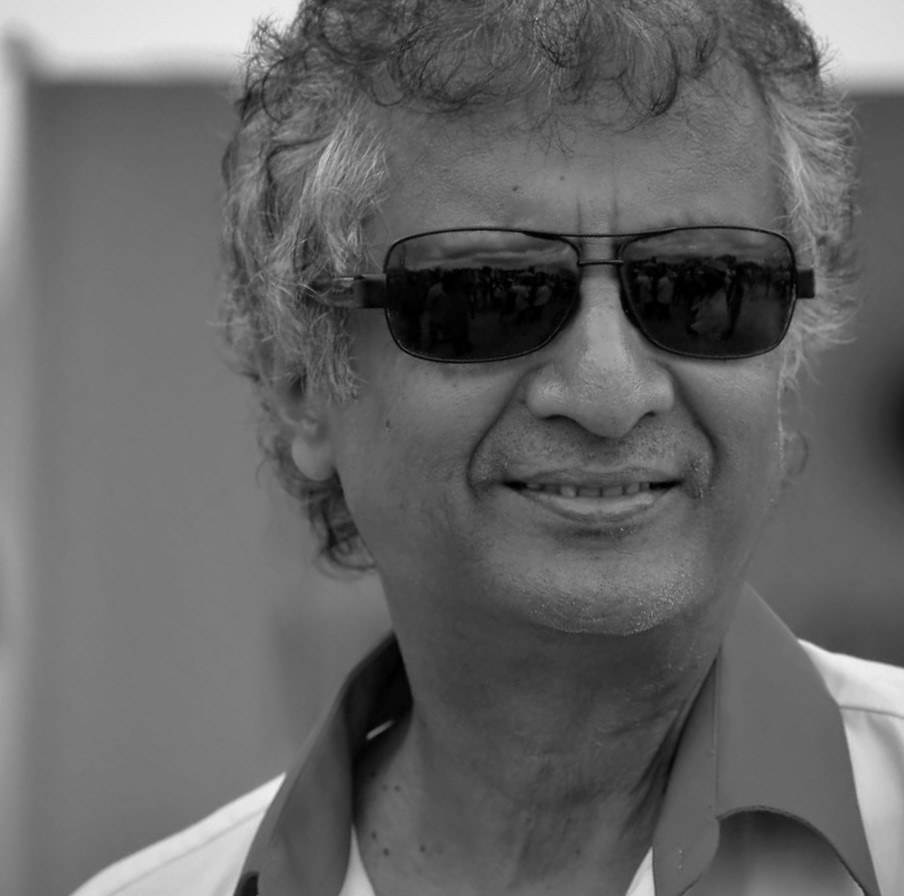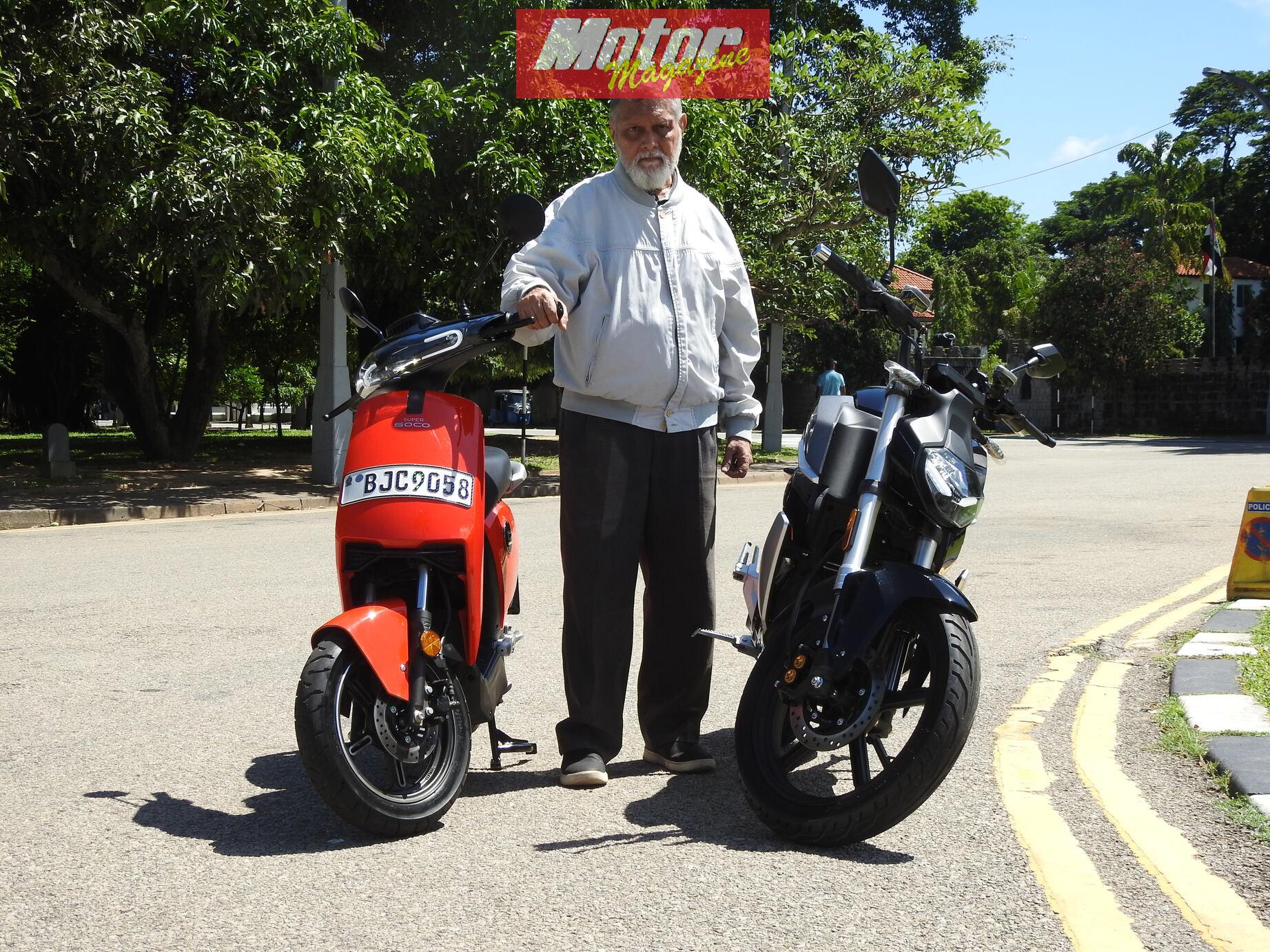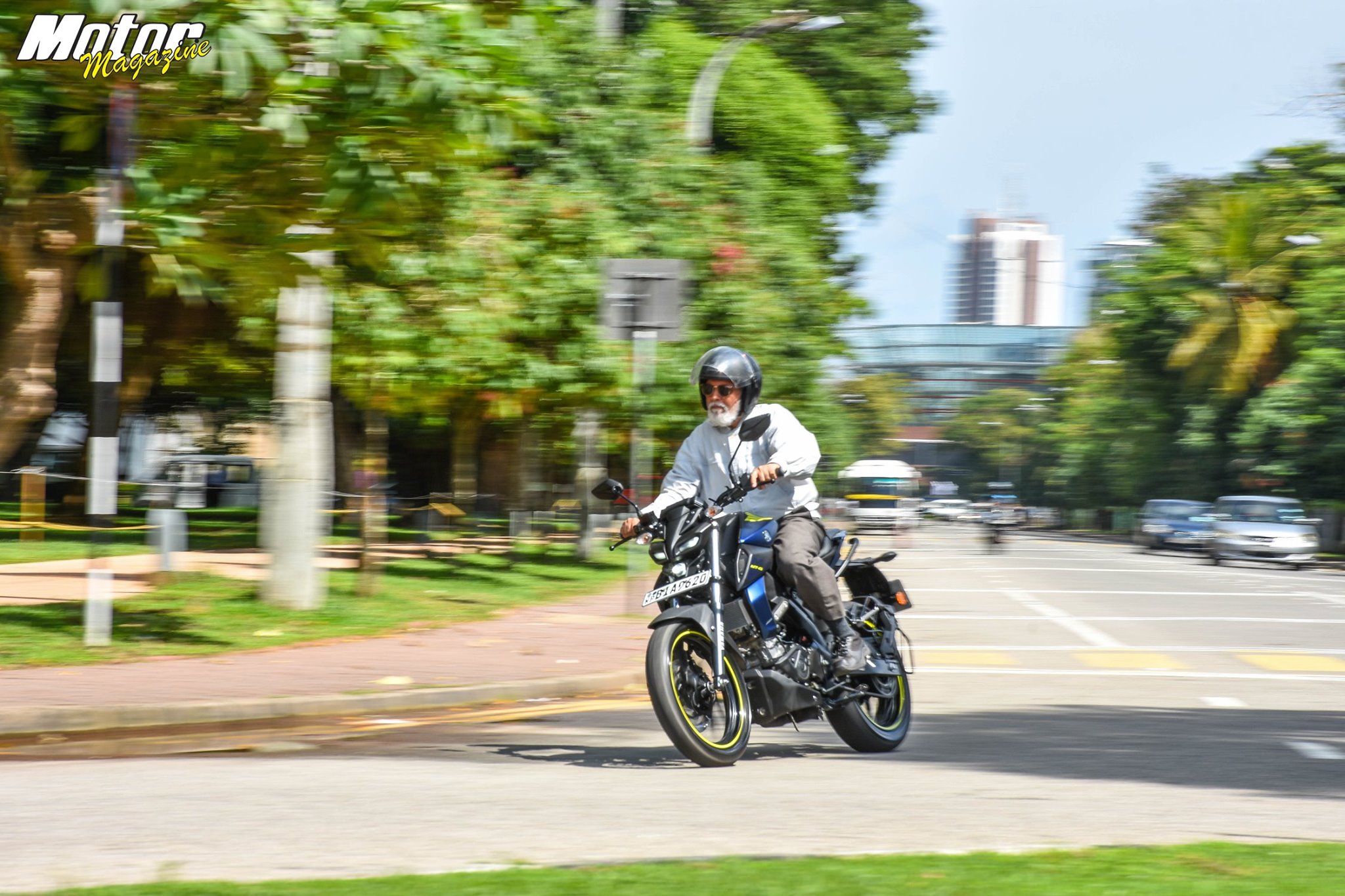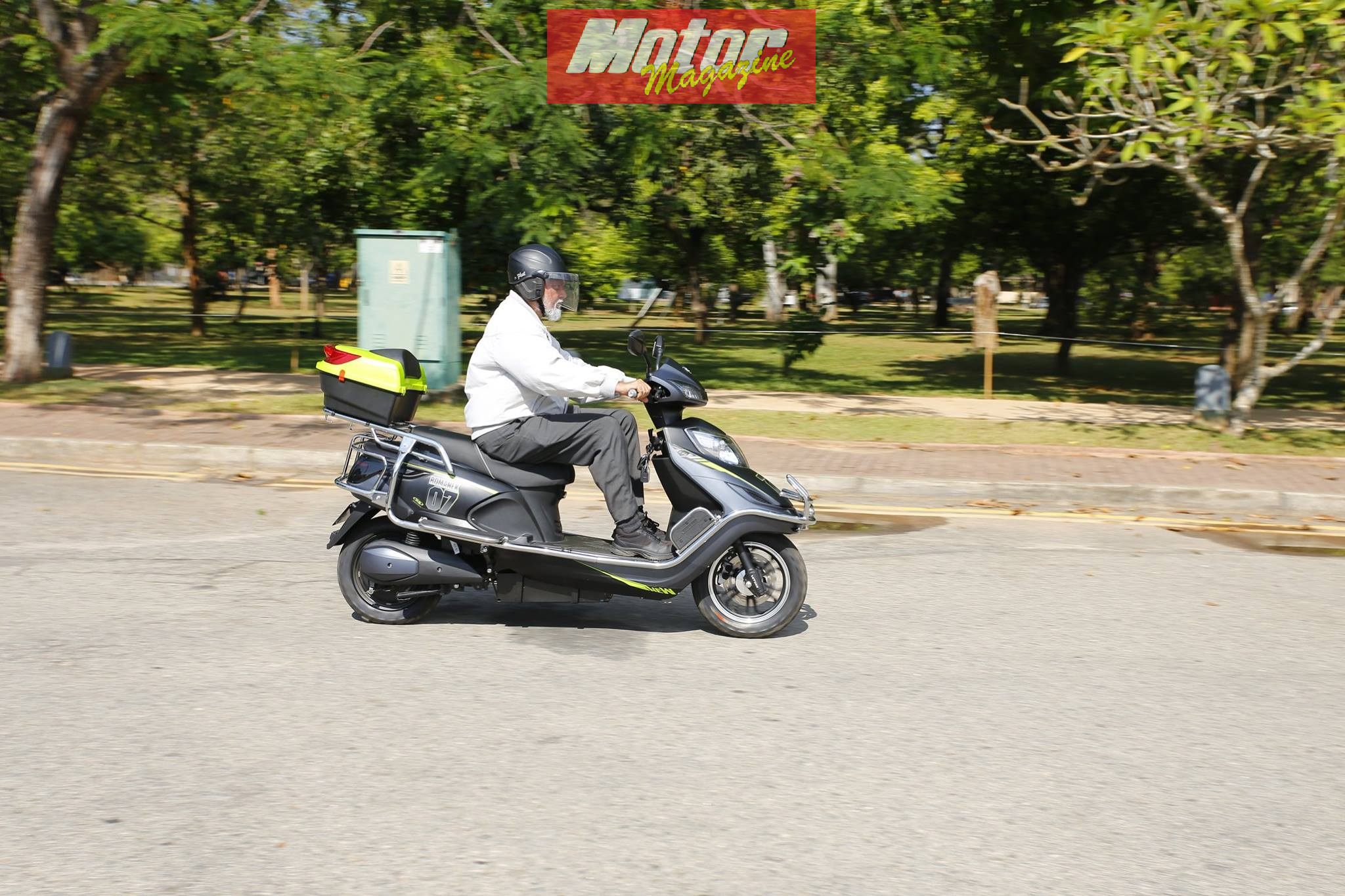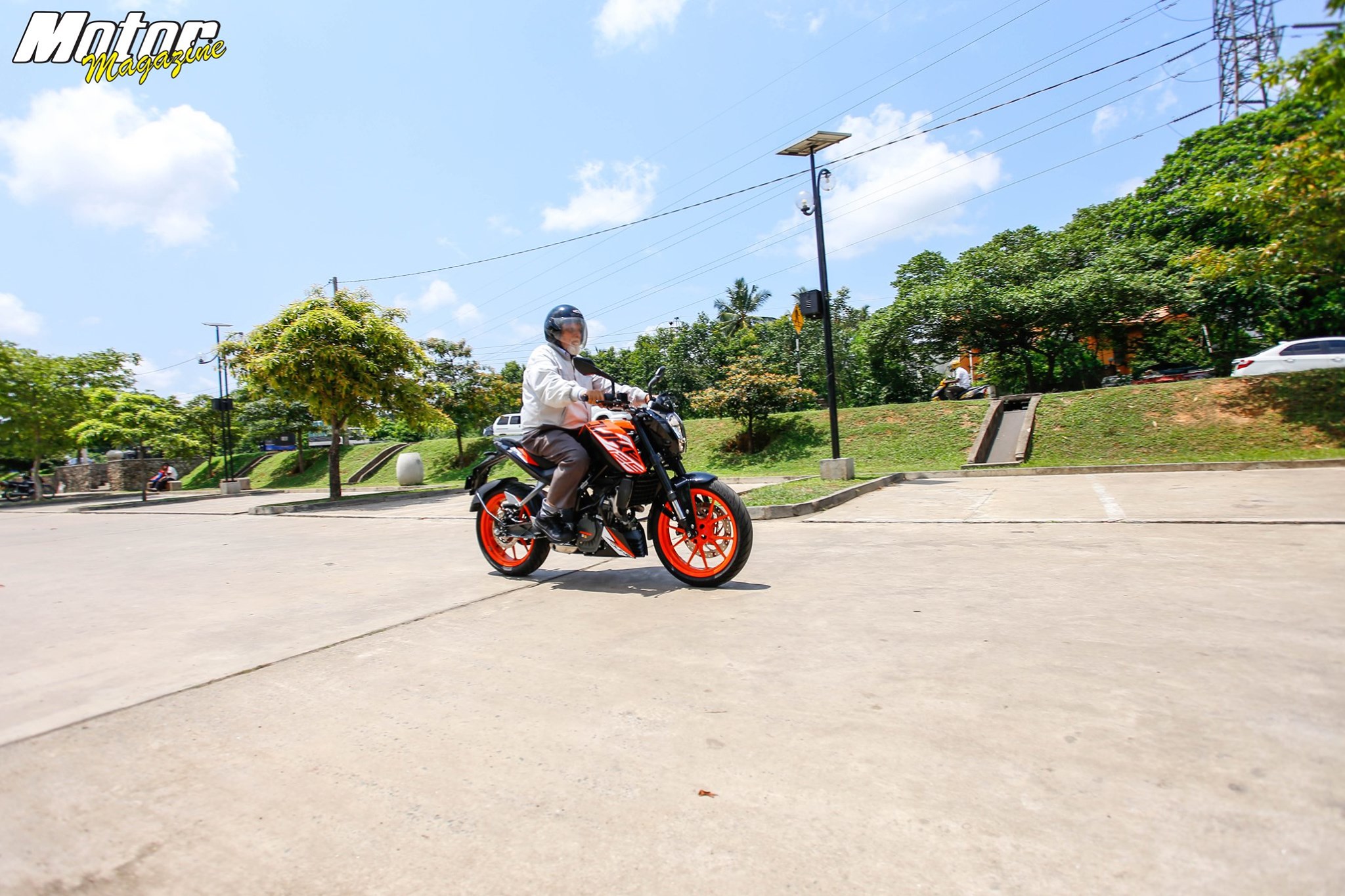The Speed Twin 5T is a standard motorcycle that was made by Triumph at their Coventry, and later Meriden factories. Edward Turner, Triumph's Chief Designer and Managing Director, launched the Triumph Speed Twin at the 1937 National Motorcycle Show. It was a 500 cc OHV vertical twin in a lightweight frame and the first truly successful British parallel twin, setting the standard for many twins to follow.

After World War II the Speed Twin was responsible for the survival of Triumph - and several major British marques offered a 500 cc twin designed on similar lines to the Speed Twin.
Edward
Turner's Triumph twin was a major turning point for the British motorcycle
industry, as although a 500 cc parallel twin of medium capacity was not
revolutionary, the 5T Speed Twin model was lighter than many contemporary
singles with significantly more power and torque. Early models were only
available in 'Amaranth red' with hand painted gold pinstripes to set off the
chrome.

Initially
the one piece iron cylinder was secured with six studs which led to weakness,
so these were replaced by eight studs. The two cylinders were fed by a single
Amal Type 6 carburettor and many features such as the transmission and clutch
were straight from the Triumph single. Originally with a girder fork, the
sprung saddle was the only rear suspension as the Speed Twin had a rigid frame
– also from the single-cylinder production line.
On the night of 14 November 1940 a German air raid destroyed much of the city centre of Coventry, and the Triumph factory, which was working on an order of thousands of military specification 5T's’; was completely obliterated, along with all of Triumph's technical records, drawings and designs. The Metropolitan Police Special Escort Group used the Speed Twin from 1952 until 1959.

After the war the recovery of Triumph at Meriden was largely due to the Speed Twin, which was developed in 1946 with a telescopic fork and optional sprung hub rear suspension. The headlamp and instrument area was tidied up in 1949 with the Turner-designed nacelle, a feature retained until the end of the model line. In 1953 the Speed Twin caused controversy among traditional British riders as the generator and magneto were replaced with a Lucas alternator and battery/coil ignition system.
Further development led to the 1959 model 5TA with a unit engine and gearbox construction and styling changes including the unpopular 'Bathtub' fairing which became more and more abbreviated as the model developed before disappearing altogether for the last year of production in 1966.
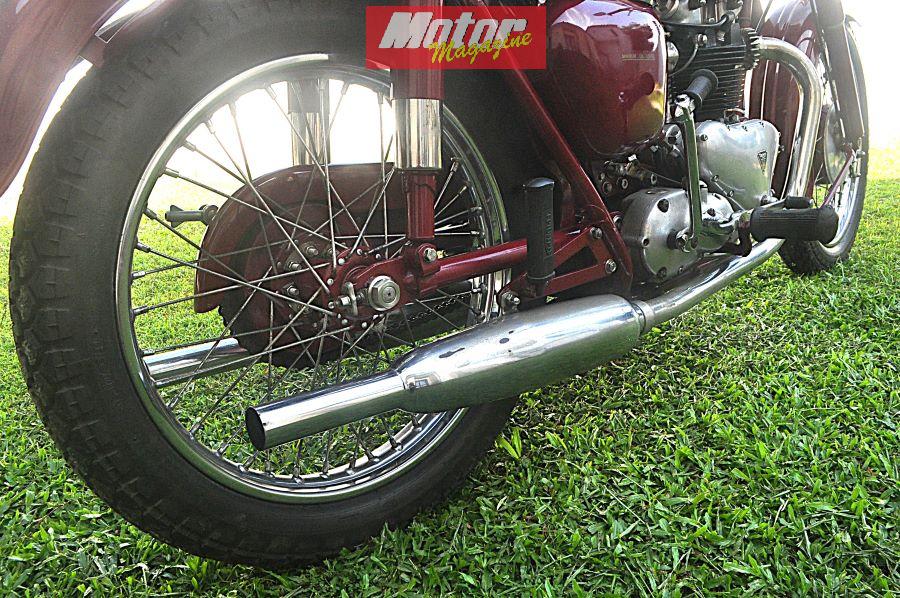
The unit 500 engine continued development in the parallel Tiger 100 range, ending with the Tiger Daytona models which ceased production in 1973.
The featured 5T was imported to the country in November 1958 by the Police Department. As was popular then, it was a “Police Bike” for over a decade when it would have been replaced with the 5TA model with the “Bathtub” Faring.

The
current owner Alistair Bernard acquired the bike in 2011 in very poor condition
and meticulously repaired and restored the machine to its current pristine
condition. Along the way a lot of parts had to be imported from England as well
as from Australia.
Alistair comes from a real bike enthusiast family. Starting from his father who has been a Velocette enthusiast, Alistair’s brother in Australia is also supposed to be having a collection of classic bikes! Alistair has several classic bikes under restoration and waiting to be restored. Among the bikes that we saw in his house was a Velocette and a Triumph Tiger Cub.
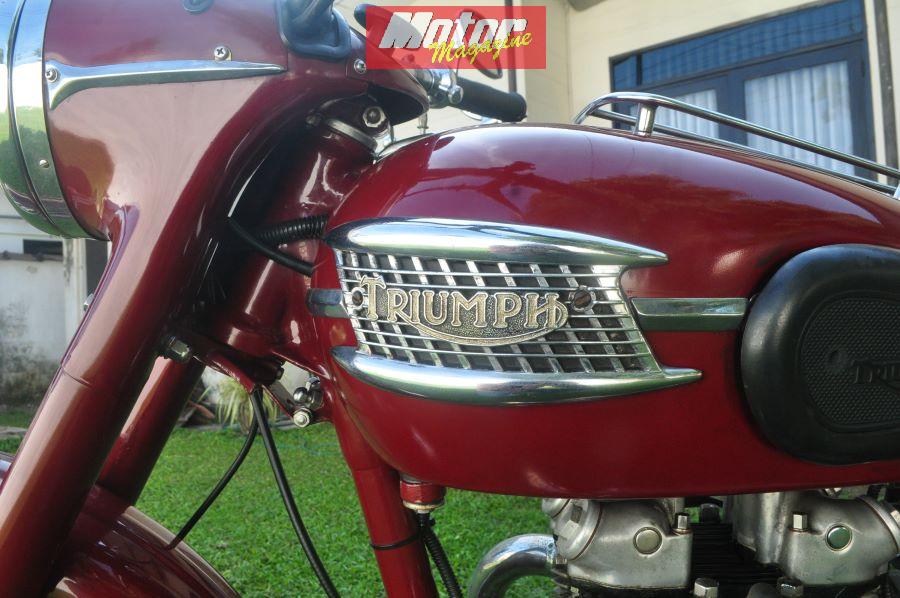
Needless to say, the Triumph Speed Twin featured here is in great condition and we are happy that it is in the hands of fastidious owner Alistair - and therefore should last in this condition for several more decades to come.

Triumph Speed Twin 5T Specifications
Manufacturer Triumph
Production 1938–1940,
1947–1966
Engine 498 cc 360-degree parallel
twin OHV four-stroke
Carburetor Amal 376
Bore
/ stroke 63 mm × 80 mm (2.5 in × 3.1 in)
Power 27
bhp @ 6,300 rpm
Transmission 4-speed
manual / chain
Wheels 19
inch
Wheelbase 55
inches (140 cm)
Weight 166
kg (dry)



